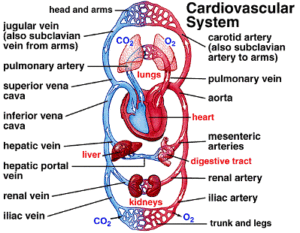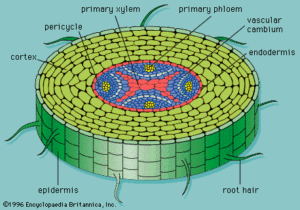Introduction
How does oxygen reach every single cell of the body?
Vascular (tubular) system
Mass flow
Introduction
Gas exchange in large multicellular organisms is achieved by organs which have a large surface area and so are able to successfully provide the substances the organism needs in order to survive. In humans this is achieved by the lungs. But how does the oxygen acquired by the lungs actually reach every single cell of the body? A network of sorts is needed to do that. Many bigger and smaller tubes would come in handy. They would form like a… circulatory system. Oh wait, that’s precisely what mammals have: a circulatory system made of arteries, veins, capillaries, etc.

Plants, too, have a vascular (tubular) system. It is made of xylems and phloems. Yes, complicated names which you will love to learn about in the following topic (The Passage of Water through a Plant).

The key thing is that this circulation of a large amount of substances via a system of transportation is called mass flow, hence mass transport. Just more technical terms for you to learn, which describe something that really couldn’t…
